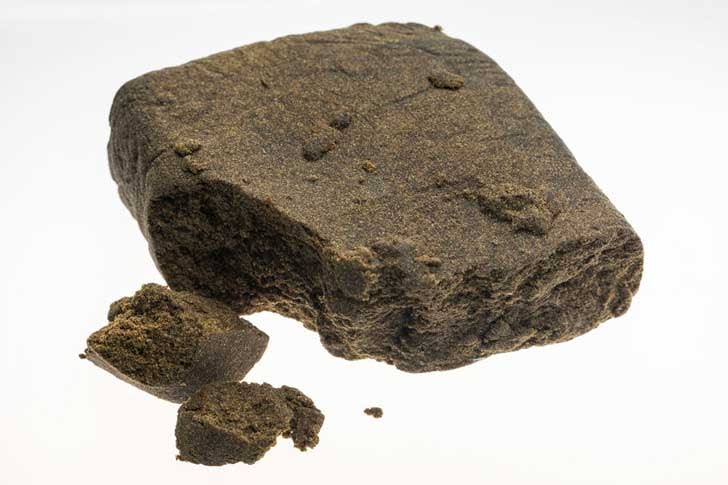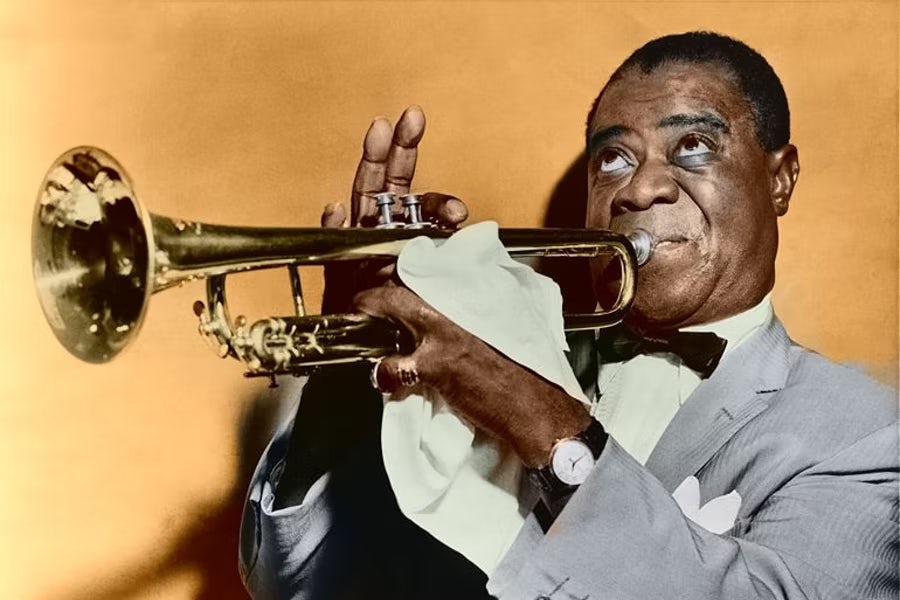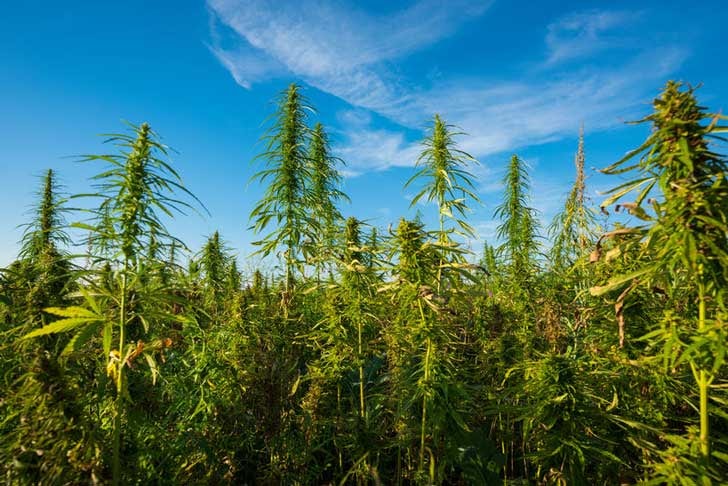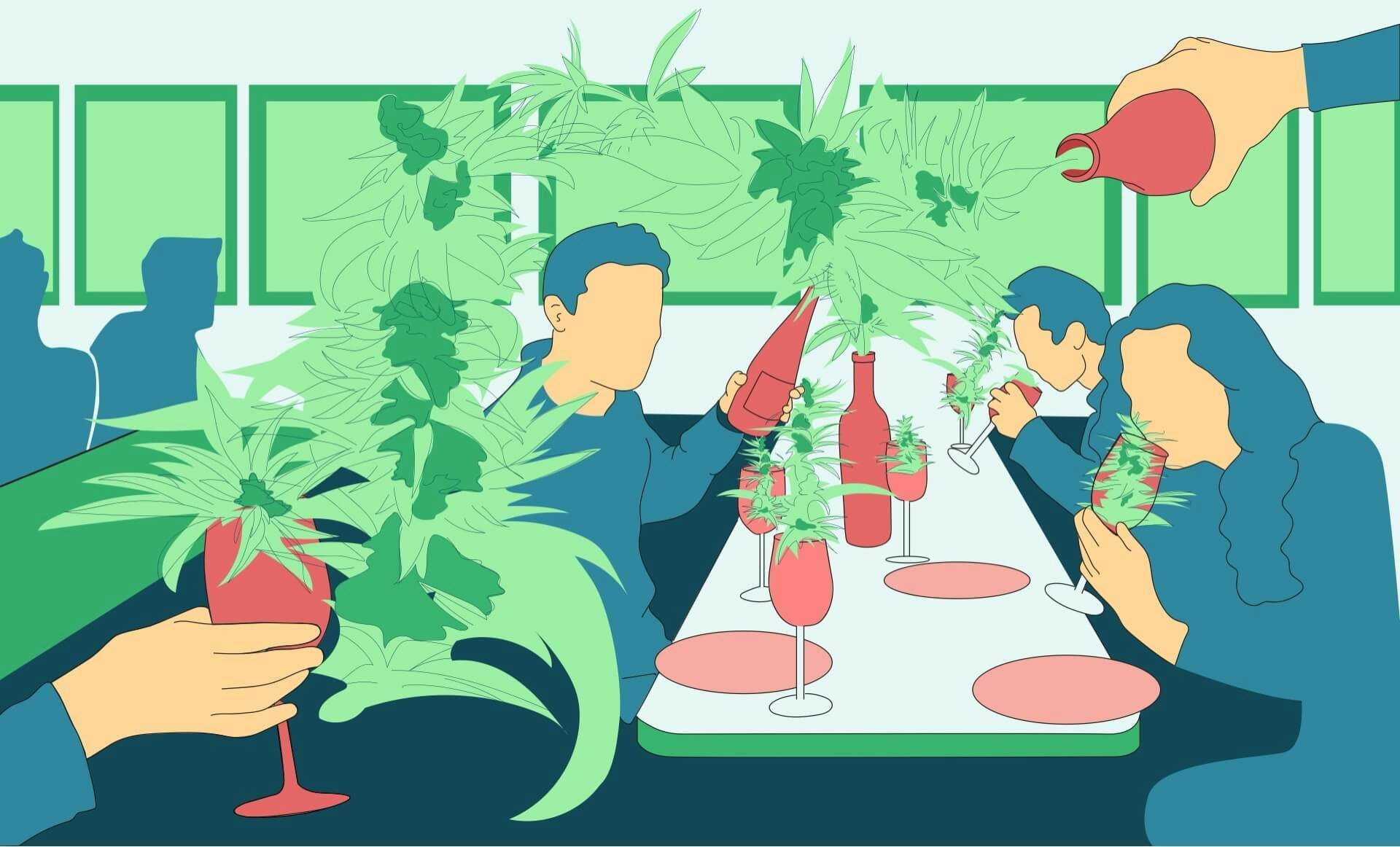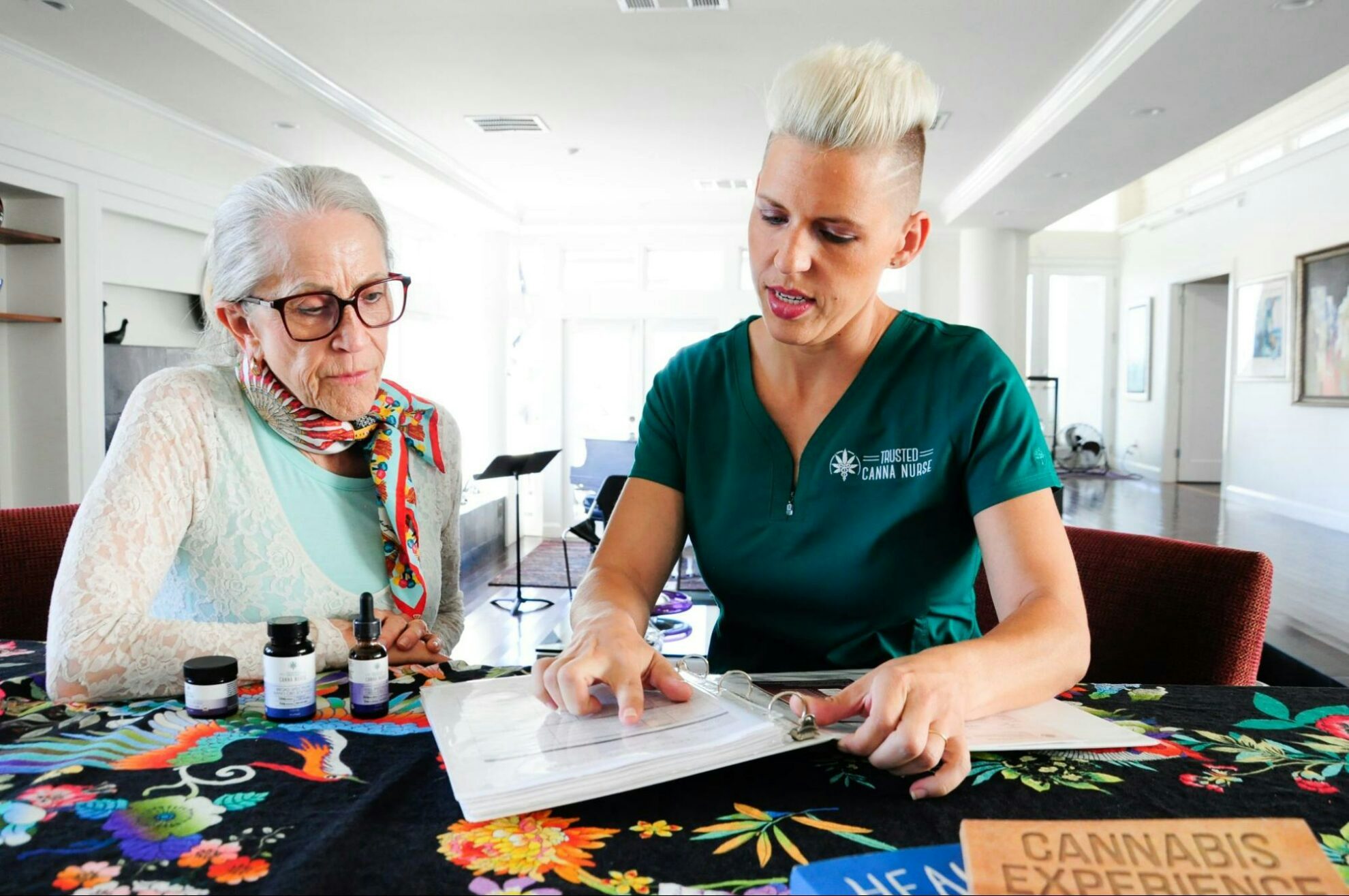After about a century of prohibition, and even longer spent as a subculture of its own on every continent on Earth (even Antarctica, probably), it’s no surprise that there are countless slang words for talking about marijuana. The use of weed slang is a credential, a pass that shows you’re on the team, and you know how to speak with a wink and a nod about what we do in the shadows, even if it’s becoming more mainstream than ever before.
Slang names vs the actual terms for cannabis
When it comes to weed, there are scientific terms and then there is slang. There is also quite a bit of overlap, and the official terms can be used almost as slang, often without a direct connection to the real definition.
These are the three most common scientific terms:
Cannabis
The genus Cannabis (Family Cannabacae) represents a number of plant species and many cultivated varieties therein. Within the Cannabis genus, we can find the hemp species Cannabis sativa, Cannabis Indica, and Cannabis Ruderalis. The vast majority of the weed we all know and love, and consume, falls into one of those first two categories.
Indica and Sativa
There is perhaps no more contentious discussion in cannabis than what makes a plant an Indica, and what is a Sativa. Conventional wisdom holds that Indica strains produce a laid back, relaxing high, while Sativa strains are upbeat, energetic, and better for the daytime. Scientifically speaking, that’s simply not the case.
The terms Indica and Sativa refer solely to the morphology of the plant (how it looks and grows) and have nothing to do with the actual chemical profile of the plant (which determines the high/effects caused by the herb in question). Generally speaking, Indica plants tend to be shorter, with broader leaves and a shorter flowering time. Sativa plants tend to be taller, with narrow leaves and a longer cycle from seed to harvest.
Hemp and Cannabidiol (CBD)
Hemp refers to Cannabis Sativa varieties that have very low levels of Tetrahydrocannabinol (THC), the cannabinoid that produces the high of marijuana. This is typically low enough – 0.2% to 1% – to not produce an intoxicating effect. Instead, hemp plants are used for industrial purposes, such as in the production of textiles, and for the extraction of cannabidiol (CBD), a non-intoxicating cannabinoid that has become very popular in recent years for its potential health benefits.
Scientists and researchers may prefer terms like Cannabis Sativa, but what about the people responsible for telling the story of cannabis today?
According to the Associated Press stylebook guidelines, “use marijuana on the first reference generally; pot and cannabis are also acceptable. Cannabis is the usual term outside North America. Slang terms such as weed, reefer, ganja or 420 are acceptable in limited, colloquial cases or in quotations.”
The use of the term “cannabis” to describe marijuana has definitely soared in recent years in the United States, as legalization has spread and the legal industry has exploded in exponential growth. But this is a relatively recent development, and for most of the past 100 years or so of prohibition, slang has been the lingua franca of this realm.
The most popular slang terms for cannabis
Marijuana
Judged solely by its universal name recognition, this slang term for cannabis is something closer to an official term. But the history of the word is more complicated and problematic, and a closer look makes it clear why so many people prefer the term “cannabis.”
There is a concerted effort to rebrand the plant as “cannabis” with the wider public, even if there is no evidence that the public distinguishes between the two terms. Though the origins of “marijuana” are unclear, it is believed to have caught on during the Reefer Madness days early in the criminalization of cannabis, as a way of making it sound like a nefarious narcotic popular with spanish-speaking migrant workers and illegal immigrants.
It was also a way to distinguish between the plant cannabis and its intoxicating flowers. The push to replace “marijuana” with “cannabis” is a major cause for legalization supporters and the cannabis industry, and a step in the eradication of the stigma surrounding the plant.
Pot, Weed, Dope, Grass, Herb – the old school basics
Chances are the first time you heard weed slang it was one of these five words. If you’re a little older, it may have been “dope” or “pot” but all five refer to the same thing – cannabis that you are consuming to get high.
Reefer – a really old school slang term
Reefer is one of those slang terms that will date someone in a major way. Reefer originated in the Jazz Age, and was perhaps the most well-known term for cannabis in the days of Reefer Madness, when legalization could not have possibly been farther from the reality. The use of the term may bring to mind those days, and, like with “marijuana cigarette,” hearing it spoken out loud in 2021 is a clear sign that the person speaking is very old, and potentially a member of the law enforcement community.
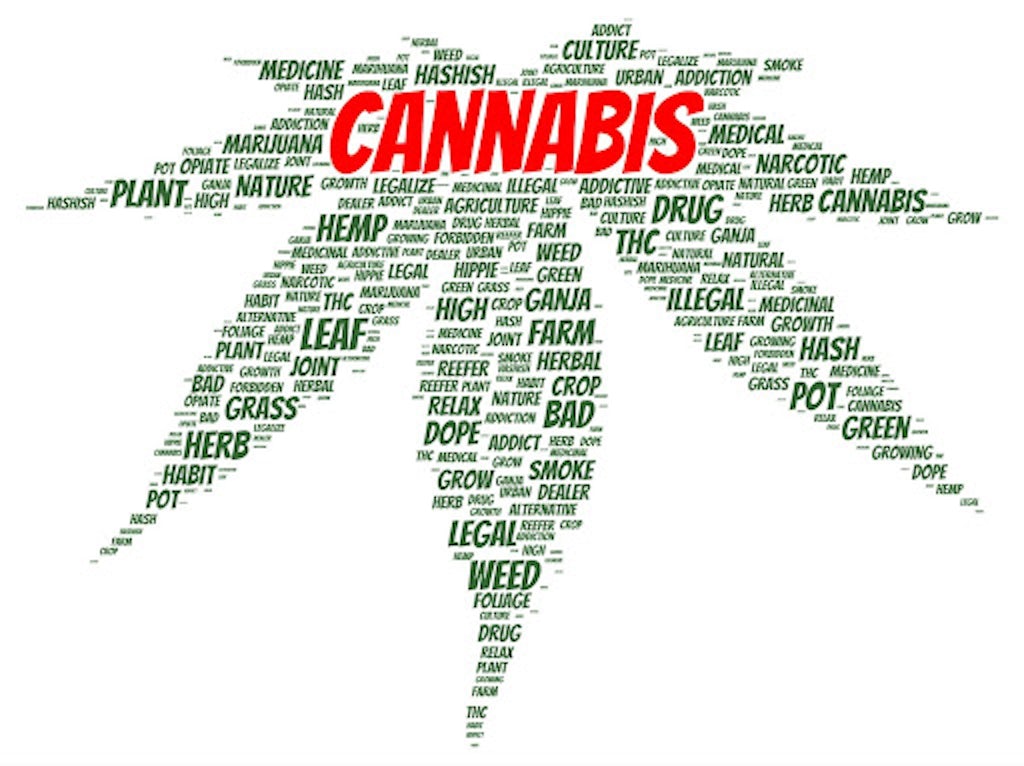
Kush and Haze
Both Kush and Haze are cannabis slang terms that are commonly used to refer to weed in general (this is especially true for Kush), but both are actual cannabis varieties that have traceable genetics and form the backbone of countless top cannabis strains.
Joint, J/Jay, Doobie, an L – all will get you to the same destination
All four of these slang terms refer to a rolled-up cigarette filled with weed. A joint is the most common term and arguably the others are just slang terms for a joint. Doobie is a pretty dated word that was at its peak in the late 60s/early 70s, but it should still ring a bell to most people these days.
Learn how to roll a great joint here.
A Pinner or a Fatty?
A pinner is a thin, small joint for those times when you’re smoking alone or just don’t have much weed to spare. A fatty is just like it sounds – a heavy hitter, mini-baseball bat or cone-shaped joint that is best when shared in a circle.
Spliff
A spliff is a joint that has been rolled with a mix of cannabis and tobacco. It can also refer to joints rolled with weed and an herbal alternative to tobacco. Traditionally, spliffs have been far more popular in Europe than in the US, and are typically the preferred way of smoking on the other side of the pond.
Blunt
A blunt is a cigar that has been hollowed out and filled with weed. A blunt should have no tobacco in it, nor a filter. They produce thick smoke and often a staggering high. A “Swisher” also refers to a blunt (and is derived from the cigar company Swisher Sweets), as does a Dutch (from the Dutch Masters cigar company), a Backwoods (from the company), and a White Owl (same).
Learn how to roll a great blunt here.
Nug and Bud
Both of these terms refer to a piece of harvested cannabis flower. When dried, cured, and trimmed properly, these pieces of flower can resemble little nuggets of all-natural goodness. “Bud” can also refer to weed in general, as in “do you have any bud?” Nug is typically just used to refer to a specific piece of weed, as in “check out this nug!”
A Dime, Nickel, 20, or 30 sack
These are all terms to refer to a small bag of weed. They have somewhat fallen out of use in the current era of cannabis, where nugs wrapped up in a cigarette pack cellophane or in a ziploc bag are no longer the norm. Still, the meaning is right there in the name: a nickel costs 5 bucks, a dime bag ten bucks, and you can probably guess what a 20 or a 30 sack is.
An eighth, a quarter, a half ounce, ounce, a QP, an elbow
As actual measurements of weight, these terms are technically a bit more than slang, but there may be a bit of an overlap. A “zip” can also refer to an ounce, and for real old timers, “a lid” means the same. Meanwhile, a QP is a quarter pound of weed (4 ounces), while an “elbow” is a pound, and is derived from the “lb,” the abbreviation for pound.
Schwag, Bammer, Dirt weed, Reggie
Not all weed is created equally. All four of these terms refer to bad weed that you should really only save for trying times when your options are limited or non-existent. When you hear the words “this is some shwag,” or “don’t give me no bammer weed,” you know you got the wrong herb.
Mid or Mids
Not quite as grave as schwag or “ditch weed,” “mid” is weed that you would consider mediocre at best. It’ll get the job done, but “that guy smokes mid” is something you don’t want to ever overhear people saying behind your back.
Gas or Fire
When you hear “gas” or “fire,” you know your weed is legit. “Gas” comes from the fuel or diesel smell that many top notch strains give off, while “fire” can refer to anything that is great/hot, including weed. Both words are relatively new weed slang terms, and both are in high circulation in the cannabis world today. Like gas, “dank” is a slang term for great weed which evokes the smell of top notch weed. “Chronic” on the other hand, refers to heavy-hitting effects of strong killa (another term for weed).
Loud
Loud is another term for really great weed. It comes from the fact that the smell and appearance of weed can be “loud” and drown out everything else in the room when you open the jar. The term is relatively new, and is very-commonly used today.
Dab
“Dab” or “dabs” refers to concentrates which are extracted from cannabis and are heated and vaporized in a “dab rig” and inhaled. These concentrates are known for having very, very high levels of THC, and for producing an especially strong high even with just one hit.
Learn more about dabbing here
Stoned or Smacked
Speaking of dabs, all of the three terms here refer to the feeling of being very much under the intoxicating influence of THC. Smacked is the newest of the three though. When it comes to “stoned” vs “high,” typically stoned is a very powerful feeling, and one that’s more associated with the “couch-lock” feeling. High can typically just mean someone who is feeling a little bit of an effect, though it’s a wide range, and adding “very” or other superlatives can indicate just how high you actually are.
420
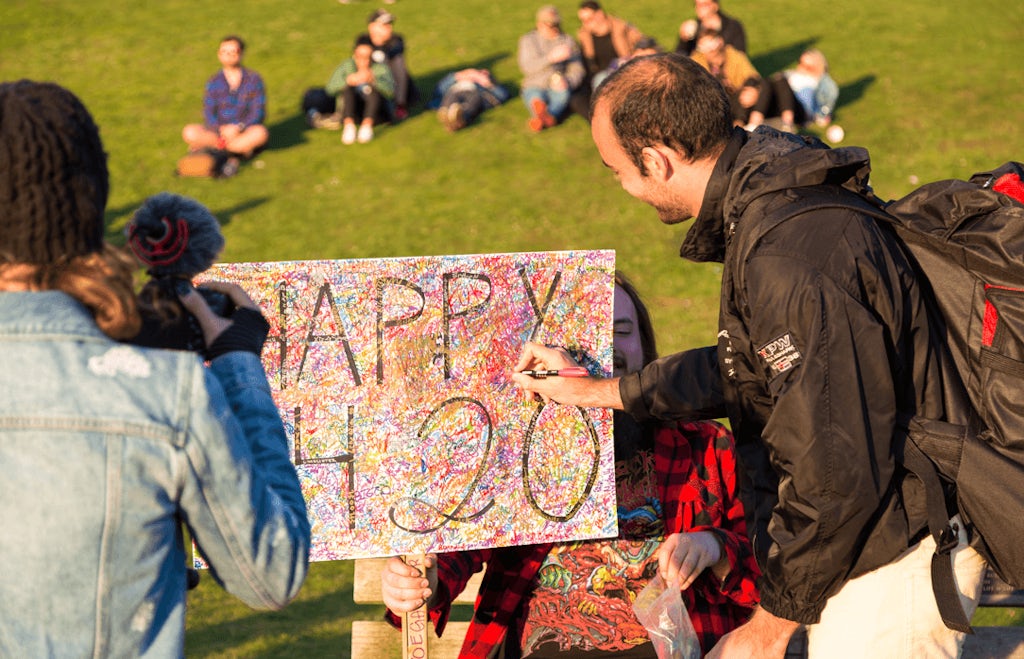
420, also written as 4/20, is a slang term that basically applies to the wider world of marijuana. The term originated with a group of high school friends in the Bay Area in the early 1970s, who used it as a code word to signal it was time to meetup for one of their weed-fueled adventures. Today, “420” can be seen on countless posters or bumper stickers at head shops, in the names of Dutch coffeeshops, and really anywhere that people want to signal that they’re cool with weed.
Because of 4/20, April 20th is the date of countless weed festivals and celebrations the world over, and for countless cannabis fans, when the clock strikes 4:20pm, it’s cause for comment and a signal that it’s time to roll up a joint. The term has also been adopted in the hospitality industry, where “420 friendly” has become a way for hotels to let travelers know that their establishment is a safe refuge where they don’t need to worry about the management calling the police.
Cannabis slang terms from around the world
For thousands of years, cannabis has been one of man’s best friends in countries far and wide, from India and far east China to Sub-Saharan Africa. It is no wonder then, that most countries have their own unique cannabis slang terms. Here are some of the more well-known:
What do Jamaicans call weed?
One of the global centers of cannabis and cannabis culture, Jamaica has gifted the world with a number of weed slang terms, in particular “ganja.” While the word is often described as being Hindi in origin, it is today most associated with reggae music and Jamaica, where it is the most commonly-used word for weed. Another commonly-used word for weed in Jamaica is Kaya, which many people may have first heard in the Bob Marley and the Wailers Song of the same name.
Spanish slang for weed
With its cannabis clubs and general culture of tolerance, Spain has become a cannabis heartland in its own right. If you’re traveling in Spain, “yerba” or “hierba” can be used for weed, as can “mota” – which is also a very popular slang term for weed in Mexico.
British slang for weed
There can be serious regional differences in the UK when it comes to weed slang, but by and large they use the same basic terms like weed, grass, and pot as in the US. One big difference is the much heavier use of the term “skunk” to refer to high grade weed.
What do they call cannabis in Africa?
Across the continent, there are all types of words for weed, but some stick out more than others. “Dagga” is a term used in South Africa to refer to weed, while in North Africa, “kief” can be used to refer to weed as a whole, and is derived from the word for the trichome crystals that fall off cannabis flour, especially during the preparation of hash in the hinterlands of Morocco. Other slang terms include Liamba (used in Angola), “diamba” (Sierra Leone), “bangi” (Tanzania), and “motokwane” (Botswana).
What do they call cannabis in India?
India is another global center of cannabis history and culture, and it has left its mark on the world of weed slang. Most notably through the word ganja, but also through “charas,” which refers to a cannabis concentrate made since antiquity in the subcontinent. Another term, “bhang,” refers to a traditional (and intoxicating) cannabis drink made in India, and which is largely tolerated under Indian law.
So how many slang terms are there for weed?
There is no shortage of names for weed around the world, and they can vary widely from region to region and from one state or even one city to another. This is why it’s impossible to say just how many funny names there are for weed. Every few months or so another slang term comes into vogue, and even just saying that a certain word is a popular slang in one country may overlook the fact that completely different words are used in a different part of that same country.
Like the cannabis plant itself, the slang terms used to describe it are constantly evolving, helping establish a culture and a language all their own.
Sign up for bi-weekly updates, packed full of cannabis education, recipes, and tips. Your inbox will love it.

 Shop
Shop Support
Support


